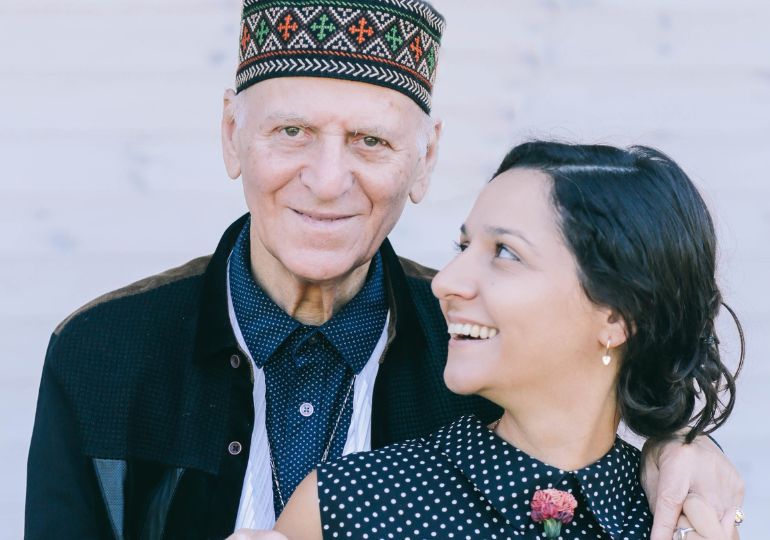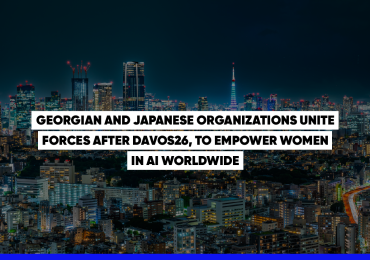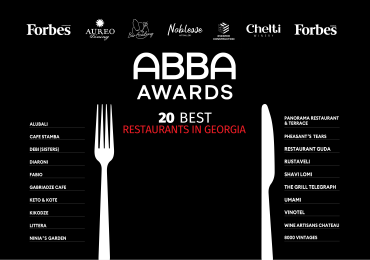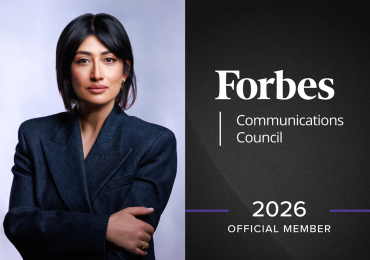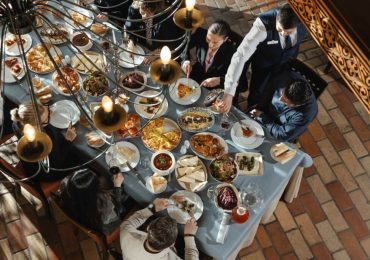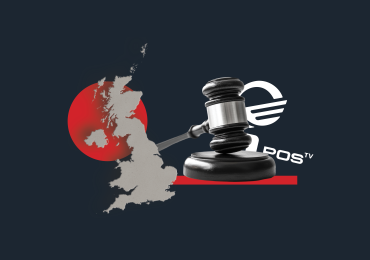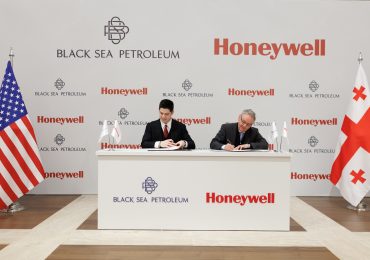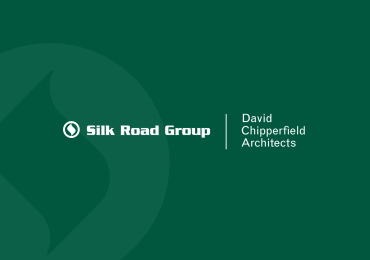“Children need our unconditional love and acceptance in order to be developed as happy and successful persons. This is the goal of our academy” – this is how the founder of “Amonashvili Academy”, Nino Amonashvili, described the activity, which is based on the humane pedagogy created by her grandfather – Shalva Amonashvili in the 1960s. Nino has been working in psycho-educational field for years and continues the work of her family and grandfather. Forbes Georgia also recorded an interview with 92-year-old Shalva Amonashvili who recalled what way the pedagogy originated in Georgia had taken to establish itself in the world.
Nino, you came up with the idea of creating the “Amonashvili Academy” based on your grandfather’s pedagogy. What was the process of its establishment and development?
I think nothing happens by chance in our life. I wasn’t born by chance in the family of Amonashvili either. Humane pedagogy and work for children has just turned out to be our family’s activity and aspiration. For the last 17 years, I have accumulated significant academic and practical experience. I had to study and live in several countries, including USA, Sweden and Switzerland. I tried myself in different fields, but soon I realized that I was very attracted to working with children and decided to establish an academy with my family members.
International experience and knowledge helped me a lot to take into account the practices of other countries, combine them with humane pedagogy, Georgian reality and offer a unique product to both Georgian and foreign parents and children.
The fact is that the humane pedagogy, which was created in Georgia through the efforts of Shalva Amonashvili, has been found in other countries. Among them, for example, in the Baltic countries: all teachers in Estonia are trained according to these principles; it is one of the methods offered by the state in Ukraine; Retraining of teachers at the state level and others are still ongoing in Kazakhstan. In spite of the fact that, at the time when we decided to open the academy, practically no one in Georgia knew Shalva Amonashvili any more, as a long time had already passed since the 1960s. Therefore, we initially started with separate one-day seminars conducted by Shalva and my father, psychologist Paata Amonashvili. Their seminars soon became very popular, especially in the Internet space. This prompted us to expand.
In the village of Busheti, Telavi district, we have a home of Amonashvili, where we have been holding family seminars for foreign guests for ten years. In 2018, we held the first Georgian family seminar, and since then, about 300-400 Georgians and more than 1 500 foreigners visit our home twice a year. We have a very interesting program there. This is a family workshop that lasts 4-9 days. We named our neighborhood the children’s city “Mzianeti”, where children and parents change roles – parents go to school, and children work. Parents have trainings in raising their children. Children take Parents to school in the morning, and they go to work themselves. “Mzianeti” has its own city – hall, where there are various functioning institutions, and children choose which institution they want to work in. For example: in the Institute of Environmental Protection or the Department of International Relations, a theater, a cafe, the City Hall, the Sports Department or others. Children earn local money called “dari”. In the evening, they can spend the earned money on various activities, for example, invite their parents to the “Mzianeti” cafe, or to the swimming pool, or buy a gift in the store. Parents do not have “dari” because they do not work.
It all makes for a very interesting dynamic, as children suddenly start behaving the way their parents treat them in real life. And for parents, it’s a good example to see what they need to improve on. They realize their mistakes. It is a unique experience for both parents and children. Our area changes and develops more and more every year. If until now we had only ten hotel rooms, one conference hall, cafeteria and several rooms for children’s activities in Busheti, this year we added a 20-room hotel, a concert/conference hall for 300 people and three additional buildings for children’s activities.
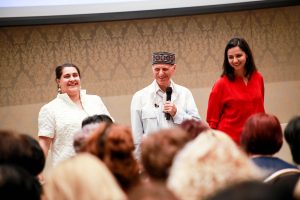
You have a center in Tbilisi as well. What kind of programs do you offer there?
At the beginning, when “Amonashvili Academy” was opened, we had the main focus on working with parents. Almost all activities were mainly tailored to them. However, there was a great demand from parents to start working with children, so in 2019 we opened our center in Tbilisi, where we started conducting psychological programs. The programs have slowly expanded and now we have six different programs at the academy for 3-17 year olds. For example, the “Believe, You Can” program, through which we help teenagers adjust their self-esteem, which is a particularly painful issue for teenagers. We also have the “Me and My Emotions” program, where we teach children to recognize emotions and deal with them. We also have a happiness laboratory, where we try to help children find happiness in themselves, in gratitude, forgiveness, helping others, etc. We also have a “school” program, which helps children to overcome school problems, to increase their motivation to study, and to improve their relationships with peers and teachers. Finally, we have programs in the direction of preschool education, which take into account games of a more developmental format. About 1000 children are involved in our activities every year.
In 2020, for the first time we opened a camp only for children in Busheti, in estate of Amonashvili, which received a very positive feedback from both children and parents. “Mzianeti” camp was held for the second time this year, and the children of our camp are already waiting and are looking forward to a new stream.
In addition to parents and children, we have many activities for Georgian teachers as well. We started conducting the annual “Amonashvili’s open lessons”. The first event was attended by 500 Georgian teachers. Unfortunately, then the pandemic began and we were no longer able to organize such a large-scale meeting, but I hope we will continue such meetings next year. Until then, these years, we have been actively working with them online. It should be noted that all of our activities planned for teachers are usually completely free and they are financed by our academy.
In addition to these programs, we also added a publishing house – Amonashvili’s publishing house. Shalva and Paata Amonashvilis have published six books. One of these books was co-authored by me and Shalva. An interesting book was published specially for pregnant women and novice parents. We continue to work on new editions..
The last news is that we have just opened kindergarten in Tbilisi, we are working hard in order to have a different kindergarten where children will be happy. They do not have standardized lessons, but grow as individuals through different games and acquire practical knowledge. All of our teachers are trained with Shalva and Paata Amonashvlis and the whole life of the kindergarten is based on the key basics of humane pedagogy.
What distinguishes Your teaching method from other methods?
Each child at the Amonashvili Academy is happy and feels as a peer to adults. Every child with us feels respected and listened to. They have a feeling that they are adults, which makes children happy. Our goal is to form children as individuals who will do good things for the world in the future .
Since you are expanding your education from year to year, how do you characterize the education sector in the context of business?
Working in the field of education as a doctor is more calling than a business. This year “Amonashvili Academy” became a member of the World Parents Association and we were in the Netherlands at the International Conference in the previous month, where representatives of other countries working in our field were saying the same thing. Education is not a very profitable business, in the traditional sense of the word. This is a more good activity that you have to do by calling. We personally, however, bring all the money back to the business and try to add new programs, improve infrastructure, develop more and move forward. This has allowed us to develop additional infrastructure in Kakheti, to purchase a building in Tbilisi last year and to open a kindergarten. We will publish new books with the money got from the already published books, etc. The main thing is that the process of our growth does not stop, which makes me very happy.
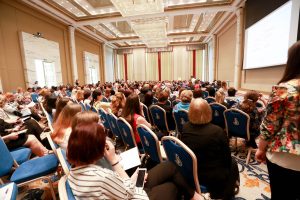
Mr. Shalva, the idea of humane pedagogy emerged in 1960 and you were its author. Tell us how human pedagogy emerged and how it spread all over the world?
At that time, a broad movement began to discover new pedagogy in the Soviet Union. They were looking for new ways to teach children to improve the process of knowledge acquisition. Research was begun and experiment in schools was launched, which had been previously banned. Along with my associates, based on Dimitri Uznadze’s doctrine I opened the first experimental class at Tbilisi 54th School. It turned out that our experiment was very successful and soon the first Republican Experimental School was built on Sairme Street in Tbilisi.
Based on our experiments, many changes were made to the Soviet education system of that time, such as getting 6-year-old children at school (before that time they had not been allowed to go to school under 7), a 5-day training week (before that time children had to study on Saturdays) and other changes.
After the collapse of the Soviet Union, humane pedagogy was widespread in the former Soviet Union and then outside its borders.
There is an International Center for Human Pedagogy, which has long been holding “Human Pedagogy Questions” (Conference) in different countries for a long time. This is an event attended by 500-700 people and where both lectures and master classes for parents and teachers are held. Twice this event was also held in Georgia. Human pedagogy today is the largest movement that unites tens of thousands of teachers and parents from different countries of the world.
Just five years ago, they knew more about this pedagogy outside Georgia than in Georgia – where this pedagogy was born. But in 2018, my grandson Nino Amonashvili founded “Amonashvili Academy” in Tbilisi, which is doing the biggest job in this direction in Georgia and is very popular in Georgia.
Finally, Nino, what new ideas are coming at the Amonashvili Academy?
First of all , we are planing to add new programs. We have children who have already passed all our programs and are waiting for the novelty. Also, at this point we pay special attention to kindergarten. We want to improve the system well, to formulate a program that will be replicated. We can do franchise and spread it in other cities and countries.
It is also my dream in the future to open a school. Human pedagogy, founded by Shalva Amonashvili, is used in many schools around the world, and I am heartbroken that there are no such schools in Georgia. That is why we want to somehow collect money to open school.
In addition, humane pedagogy is widespread in both Eastern and Western European countries, though we are eager to expand this geographical area and get to know our approaches to more countries and continents. That is why we plan to open branches of our center both in the regions of Georgia and abroad. I deeply believe that when you do a good job, you will be definitely supported. Our plans are also focused on the happiness of the next generation, so I believe we will definitely do everything.

